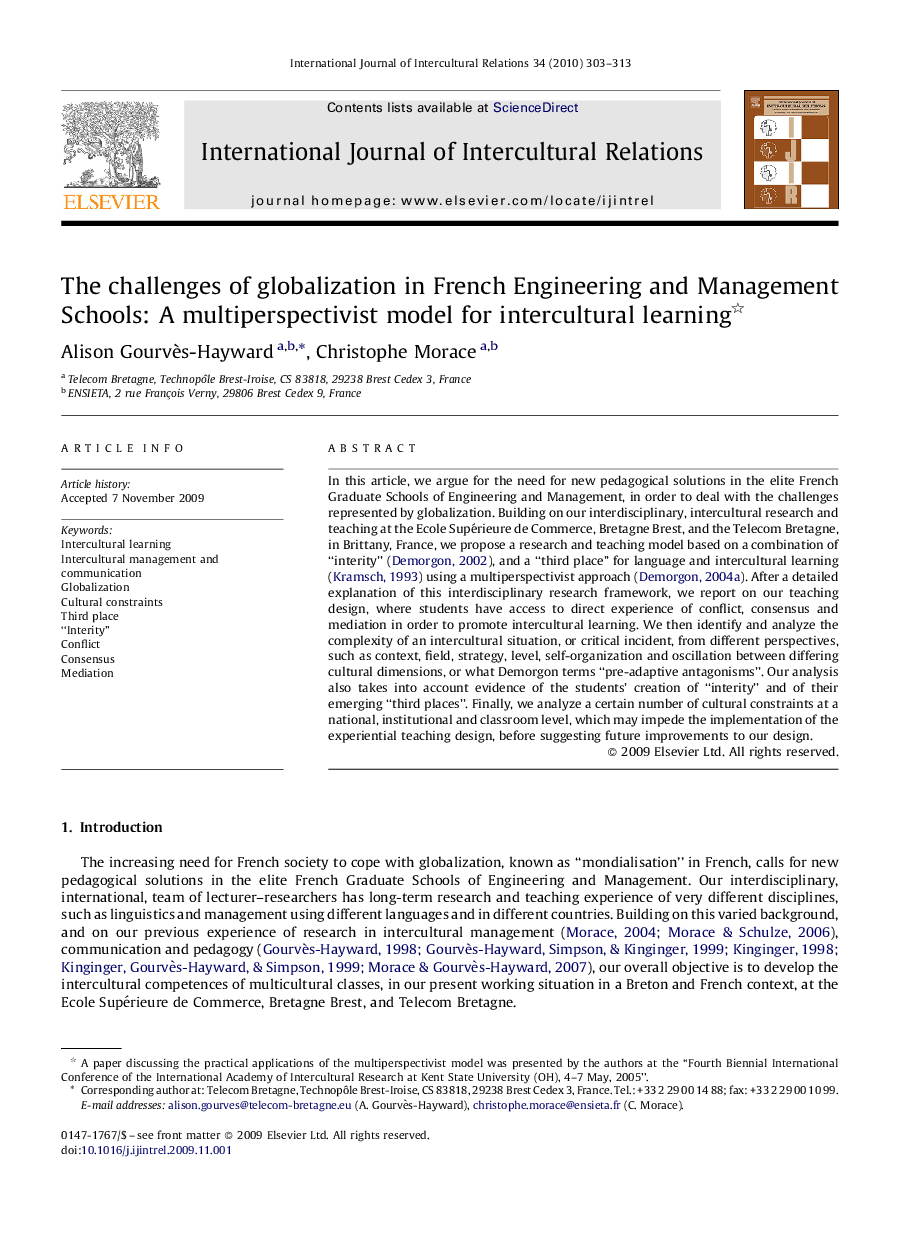| Article ID | Journal | Published Year | Pages | File Type |
|---|---|---|---|---|
| 947416 | International Journal of Intercultural Relations | 2010 | 11 Pages |
In this article, we argue for the need for new pedagogical solutions in the elite French Graduate Schools of Engineering and Management, in order to deal with the challenges represented by globalization. Building on our interdisciplinary, intercultural research and teaching at the Ecole Supérieure de Commerce, Bretagne Brest, and the Telecom Bretagne, in Brittany, France, we propose a research and teaching model based on a combination of “interity” (Demorgon, 2002), and a “third place” for language and intercultural learning (Kramsch, 1993) using a multiperspectivist approach (Demorgon, 2004a). After a detailed explanation of this interdisciplinary research framework, we report on our teaching design, where students have access to direct experience of conflict, consensus and mediation in order to promote intercultural learning. We then identify and analyze the complexity of an intercultural situation, or critical incident, from different perspectives, such as context, field, strategy, level, self-organization and oscillation between differing cultural dimensions, or what Demorgon terms “pre-adaptive antagonisms”. Our analysis also takes into account evidence of the students’ creation of “interity” and of their emerging “third places”. Finally, we analyze a certain number of cultural constraints at a national, institutional and classroom level, which may impede the implementation of the experiential teaching design, before suggesting future improvements to our design.
